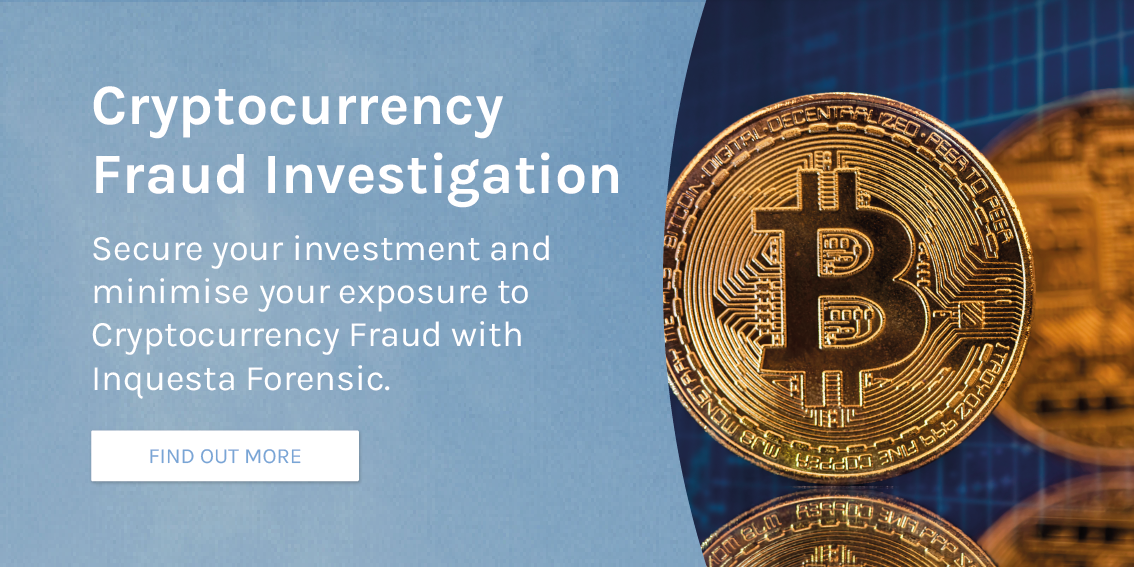Since cryptocurrency is still relatively new, it presents some considerable risks with regards to fraud. Whether you’re a seasoned investor or are looking to get involved for the very first time it’s vital that you are aware of the possible dangers that come with trading in digital currency and understand some key cryptocurrency fraud prevention habits.
With crypto, as with all other forms of investment, there are inherent risks. However, with the right level of care and research you should be able to bypass such dangers and trade freely, without fear of being exposed to any serious fraud or scams.
This blog will go into detail on the risks associated with cryptocurrency trading, discuss how cryptocurrency fraud works, what to do, and more.
What are the Risks with Cryptocurrency?
In addition to the obvious volatility of the medium, trading cryptocurrency can also come with a variety of potential risks surrounding fraud and scams. This is due to the perceived anonymity the field brings, in addition to them, at this time, being unregulated by any government or bank.
The relatively newfound status of cryptocurrency on the market means that fraudsters are flocking to it in droves in order to attempt to take advantage of a lack of awareness and understanding of its intricacies by new investors. As a result, it is estimated that over $4billion in Cryptocurrencies were stolen in 2021.
People who invest in cryptocurrency are common targets for scammers. This is why it’s so important to be wary and do your research, particular if you are considering investing for the first time.
How do Cryptocurrency Scams Work?
With the innovation that has come with the rise of cryptocurrency, at their core many common methods of cryptocurrency fraud are actually rooted in traditional scam methods, such as the ideas of ponzi schemes, and too-good-to-be-true offers and advice. Conversely, methods like fake crowdfunding, and fraudulent celebrity advertisements are more modern creations.
The purpose of cryptocurrency scams will be to either part you from your investments or convince you to put money into something that has either been misrepresented to you or does not exist.
Common Cryptocurrency Scams
Cryptocurrency fraud can vary from one-on-one deceptions, to more widespread cases where dozens of people are caught up at one time. Examples of common cryptocurrency scams include things like Fraudulent initial coin offerings, theft of wallet or keys, ponzi schemes, attempts to manipulate the market, and using cryptocurrency to launder money or avoid tax.
Examples of a selection of common cryptocurrency scams includes:
- Financial Crimes: It is believed that over $8billion in cryptocurrency was laundered in 2021 alone. Investing illicit money and attempting to ‘legitimise’ it by putting it into something legal is a common method of cryptocurrency fraud. Other examples can include utilising it to avoid high tax bills.
- Faked ICOs: The ICO, or Initial Coin Offering phase of a digital currency is when the currency creator looks to raise money for their new coin. The investor will in turn receive the token that they, in theory, would be able to sell on down the line. It is possible though for the creator to disappear once such funds are raised, leaving investors high and dry.
- Market Manipulation: The most common method of crypto market manipulation is the ‘pump and dump’ scheme. This involves a group working to artificially inflate the value of a certain, low-market coin, to attract attention from traders and investors, before then selling their coins when it reaches its peak.
- Theft: While it is commonly believed that cryptocurrency and other forms of digital assets would be immune to theft, the hacking of crypto wallets and keys, the creation of fraudulent currency exchanges and deals, etc. are shockingly common.
- Ponzi Schemes: One of the most famous types of fraud. A ponzi scheme involves generating return for early adopters directly using the money taken from later investors. The popularity of ponzi schemes stem from the claim from their perpetrators that they are a low-risk, high return investment.

Cryptocurrency Fraud Prevention Tips
Cryptocurrency fraud prevention requires you to be vigilant. Always do your research and take precautions and measures to ensure you’re never in a compromising position. Perhaps the most important measure you can take is to boost your digital security — set secure passwords, enable two-factor authentication when possible, ensure your software and OS are up to date at all times, etc.
Examples of cryptocurrency fraud prevention measures you can take to protect your investment and your position includes:
Stay Vigilant
While cryptocurrency fraudsters go to great lengths to present themselves as legitimate to not arouse suspicion, there are a few warning signs you can potentially look out for, including:
- Guaranteed returns: Strictly speaking, no financial agreement can ever be a total guarantee of a return on your investment — as much as we might want it to be true. Promises of certain returns on a crypto investment should be seen as a potential red flag.
- Over the top marketing: Heavy investment in marketing through online advertising, paying high-profile influencers and celebrities, etc. is a common measure taken to legitimise a potential fraud scheme. If you’re seeing excessive, over the top marketing you should make sure you research before you consider investing,
- Anonymous: As with virtually all forms of investment business, when it comes to cryptocurrency you should be able to easily locate and read more about the people behind it.
- No white paper: One of the most important aspects of an ICO is a white paper that explains the specifics behind the cryptocurrency. A shoddy or non-existent white paper should be considered a huge warning sign to seriously consider your investment.
Secure Your Wallet
When you invest in cryptocurrency, you must have a wallet with private keys. This is designed to ensure that any investments you make are secure. If an outside party ever requests that you share your keys with them for any reason, it’s extremely likely to be a scam.
Take a Step Back
While your instinct may be to follow the crowds and dive into investing in crypto headfirst as soon as possible, you should actually pause. Take a breath before making any commitments to do your own research into how everything works and into its legitimacy first.
Additionally, if a crypto seller ever tries to press you into making a commitment quickly, you should pause and ensure that you know exactly what you are getting into.
Remain Sceptical
If it sounds too good to be true, it probably is. Over the top promises to make you rich quickly are likely scams.
How Inquesta’s Forensic Accountants can Help your Cryptocurrency Fraud Case
The meteoric rise of cryptocurrency into our society and culture has meant that many parties have been left behind. Cryptocurrency fraud prevention has, for the most part, been one such field. If you’ve been the subject of crypto fraud, an expert forensic accountant can support and help you.
A key part of the role of a forensic accountant has always been to remain abreast of all of the latest news, trends, and innovations in their field — the rise of cryptocurrency fraud was one such trend.
Our team of forensic experts pair their decades of experience supporting clients through all manner of financial fraud cases, with their understanding and knowledge of cryptocurrency and digital assets to provide an accurate and efficient service to mitigate your exposure.
We work tirelessly in our drive for the best result possible for our clients. Your needs are at the forefront of every single thing we do, from top to bottom.
For more information on a forensic accounting service that you can trust to deliver results, contact a member of our team today or book a free consultation.



